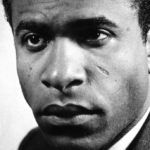A report on the March 12-14 conference on “Rosa Luxemburg’s Thought and Its Contemporary Value” at Wuhan University, China, where discussion focused not only Luxemburg’s Accumulation of Capital but also, to a surprising extent, on dialectics and humanism as well as feminism – Editors
Wuhan, Hubei, China–A remarkable conference was held in China on March 12-14 on “Rosa Luxemburg’s Thought and its Contemporary Value.” Sponsored by the Wuhan University Department of Philosophy, the conference was attended by 100 scholars and students from China and around the world. In addition to the participants from China, participants included speakers from Japan, Germany, The Netherlands, South Africa, Austria, Spain, Italy, Poland, and the U.S. It marked the most comprehensive discussion of Luxemburg’s ideas ever held in China.
The conference was similar in some respects to an earlier conference on Luxemburg held in 2004 in Guangzhou (which was sponsored by the International Rosa Luxemburg Society and the Institute of World Socialism in Beijing), in that much of it centered on Luxemburg’s view of spontaneous mass struggles, her critique of the organizational centralism, and her polemics with Lenin and other Marxists over the meaning of socialism.
ACCUMULATION OF CAPITAL RELEVANT?
Yet the Wuhan conference also differed from earlier conferences on her thought in China in that it had a significant focus on Luxemburg’s greatest theoretic work, THE ACCUMULATION OF CAPITAL. Though all the papers given on the ACCUMULATION OF CAPITAL expressed admiration for Luxemburg’s innovative effort to provide an economic explanation for imperialism, a wide range of views was expressed regarding its validity. Some were highly critical of ACCUMULATION for its criticism of Marx’s schemas of expanded reproduction in Vol. II of CAPITAL, whereas others praised it for anticipating today’s globalized capitalism.
The conference also had discussion on Luxemburg’s relevance for the non-Western world. Kevin Anderson gave a paper on “Marx and Luxemburg on Nonwestern and Pre-capitalist Societies,” which explored the similarities and differences between Luxemburg’s analysis of non-Western societies and Marx’s writings on the same subject in the last decade of his life. And Narihiko Ito from Japan gave an incisive paper on Luxemburg’s writings on the national question.
Another major difference between the Wuhan Conference and earlier ones was its focus on philosophy. Though one speaker from the West stated that “Hegel and dialectics is of no importance” for understanding Marxism or Luxemburg, that view was not shared by the overwhelming number of Chinese participants. Many of the papers given by those from China focused on Hegel, dialectics, Western Marxists like Lukács and Gramsci, and Marx’s philosophical writings.
FOCUS ON PHILOSOPHY
That half of the panels at the conference focused on philosophy may seem surprising, since Luxemburg herself wrote very little on dialectics. Yet a number of participants argued that the Western Marxist philosophical tradition’s emphasis on humanism, inter-subjectivity, and critique of commodified relations of everyday life helps illuminate Luxemburg’s expansive vision of freedom.
At a panel on “Rosa Luxemburg and Western Marxist Philosophy,” a young Chinese professor took issue with the way Perry Anderson categorized classical vs. Western Marxism by leaving out Rosa Luxemburg, and argued that she shares a lot with Lukács. Another young professor at Wuhan said that Luxemburg respected initiative from below as against the centralism of the USSR. A Chinese graduate student added that Luxemburg’s theory of spontaneity was dialectical, at least implicitly. She stated: “Luxemburg’s thoughts, after dozens of years, still make us feel fresh, because she never viewed the development of history in a still way but from a dynamic angle.”
Another philosophical approach was the paper by Estrella Trincada from Spain on “Rosa Luxemburg’s Contribution to the Philosophy of Liberation, with a Special Reference to the Women’s Liberation Movement.” She stated: “In her thought, the search for real freedom was related to the idea of ‘the whole.’ She based this on Hegel’s philosophy. Luxemburg fought in her theory and in her life against the idea of an isolated subjective ego, reactive or passive, that opposes reality beyond itself instead of acting freely in a communicative unity or totality.”
She added: “Luxemburg’s interest in women’s issues had been neglected in both Marxist and non-Marxist studies. It took the modern women’s liberation movement to discover Luxemburg’s ‘feminist dimension,’ a term used by Dunayevskaya in her 1982 book [ROSA LUXEMBURG, WOMEN’S LIBERATION, AND MARX’S PHILOSOPHY OF REVOLUTION] which traced the feminist nature of her life. Luxemburg’s earlier male biographers never considered the subject.”
My paper was on “Luxemburg’s Concept of a Post-Capitalist Society.” It argued that though Luxemburg, like most Marxists of her generation, was tainted by the notion that capitalism equals market anarchy and socialism equals a planned organized economy, near the end of her life (especially in “The Socialization of Society” in 1918) she went further in speaking of the need for a totally new kind of labor as what defines socialism. That Luxemburg wrote this long before the discovery of Marx’s ECONOMIC AND PHILOSOPHIC MANUSCRIPTS OF 1844 (which argued that the alienated character of the activity of labor is the central problem of capitalism) testifies to her grasp of the strivings of the human subject for liberation. It also raises the question of the vast difference between Marx’s Marxism and what “Marxism” has become known as in both the East and the West.
What does it mean that, at the start of the 21st century, there is such interest in Luxemburg in China? Today’s China is a country where a gigantic proletariat and urban population is rapidly being created and which has begun to make its grievances felt, as have exploited rural populations. This rapid process of modernization is bound to have an impact in the realm of ideas. In light of this, Luxemburg’s thought takes on new life because of her distinctive contributions as a woman revolutionary, her tireless critique of capitalism, and most of all, because of her insistence that “there is no democracy without socialism, and there is no socialism without democracy.”
Originally appeared in News & Letters, June-July 2006





0 Comments